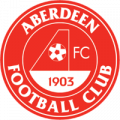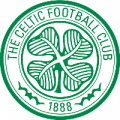Even a football fanatic would be hard pushed to try and find the links between Sunderland and Barcelona, two cities that are on completely different levels in terms of success, history and players at their respective clubs.
However under the magnifying glass there is more than just links between the two, with many citing a ‘Mackem’ as being the man that shaped Barcelona into the side that they are today. The Catalan giant’s roots run deep into the British isles which sprouted way back in 1899 as three of the founders of Barcelona hailed from England in the form of Walter Wild and the Brothers John & William Parsons, the English flag has stood alongside the Catalan flag for more than a century standing for ‘San Jordi’ but it could lie much deeper than that.
Barcelona have established themselves as one of the biggest powerhouses in world football for their principles in home grown talent in the Las Masia Academy combined with global stars, that is combined with the defined ‘tiki taka’ football which has seen themselves and Spanish national side dominating in the last decade.
Many lay the planting of these seeds at the feet of Jack Greenwell a coach barely known on his own shores until the success of Rory Smith’s 2016 book ‘Mister’, but Greenwell’s influence on not only Barcelona and Spanish football, but football globally is a story that deserves to be told.
Humble beginnings
Due to the historical era and the differing professionalism of the game across the globe getting a clear timeline of Greenwell’s gallivanting was and remains hazy, but where the coach had his humble beginnings is clear as day.
Greenwell was born in 1884 in the town of Crook, south of Sunderland and the River Wear. Jack, like many others back then, was the son of a miner and became one himself when he left school. His association with football began at the age of 17 when he played for local side Crook Town, 11 years passed at his hometown club but he never managed to make the professional level until 1911.
He got the Peripatetic taste for adventure that would go on to define his life back in 1909 when he was invited to be a part of the infamous West Auckland side, he travelled to Turin with the side that tackled and eventually thwarted every German, Italian and Swiss representative put in front of them to win what many consider to be the first World Cup.
Arriving on Spanish soil
As said records remains hazy on much of Greenwell’s career, especially how he arrived in Catalonia, but such a mystery move would prove to be a stroke of excellence for both himself and Spanish football as he would spend the next 24 years building his legacy on the continent.
Greenwell put feet on Spanish soil in 1912 initially as a player where he would make 88 appearances to some recognition across the next four years, he even welcomed some familiar faces when Crook Town came to play a series of games in 1913 in which the little town managed a 4-2 win and held them to two draws.
It is believed that it was around the time that his old side came to visit was when Greenwell is believed to have taken over the side in terms of picking and training the team, but wouldn’t officially become the head coach until March 1917 having retired the previous year.
Greenwell was one of the many British nationals referred to as ‘misters’ that were taking what they had learned on these shores and spreading them across the continents far and wide, but what was unique about Greenwell was a unique case as his rise was off his own back and initiarive with the lack of a professional reputation and network.
The coach’s tactics and regimes were certainly ahead of their time with Greenwell encouraging things such as loosening exercises and agilities, he also put great emphasis on starting attacks from the defence and encouraging players to pass rather than dribbling at players.
Greenwell caused controversy early in 1918 when he decided to try eventual all-time top goal scorer Paulino Alcantara in a defensive position, which many see as the first seeds of the tiki taka football we see today. That didn’t last long however and by 1919 he had established the base for Barca’s first ‘golden age’ with the likes of Ricardo Zamora, Josep Samitier and Alcantara who would only be eclipsed by Lionel Messi in terms of scoring.
It would prove to be a masterstroke as he would go onto win six trophies between 1918 and 1922 which included two Copa del Rey’s and four Campionats de Catalunya before his first spell at the then Les Corts came to an end.
Taking charge of the club across the way
Despite his success it was time for Greenwell to move on, spending two years with UE Sants before heading to the coast with Castellon in 1925, and his talents as a coach were exemplified as he transformed them into one of the country’s most effective side.
Barcelona was in Greenwell’s veins as his sporting influence went further than football training boxers as well as participating in Spain’s National Tennis Championships in 1927, it also brought joy and heartbreak in his personal life with death of his first wife Florence Moore in childbirth before marrying again in 1929 to Doris Rubinsun.
1927 saw the allure of Barcelona bring Greenwell back to its shores when he took charge of Espanyol, much like today they were in the shadow of their rivals across the way but Greenwell gave them their moment in the sun.
December 1928 saw them become Catalan champions with Greenwell collecting his sixth but their biggest achievement would arrive two months later, as they toppled the mighty Real Madrid to claim their first Copa De Rey to cap off their most successful season up to that point.
Following their triumph the La Liga as we know it today was born with Barca becoming the first holders which left Greenwell arguably with his greatest achievement on the continent and Espanyol as the last unofficial champions of Spain.
It wasn’t always a field of roses for Greenwell as there was hardly room for sentiment only a year after their Copa del Rey’s triumph he was getting criticised for his extravagant formations and team selections, rumours swelled in the middle of the 1929-30 season that his contract wouldn’t be renewed and left that summer.
Taking a short step back, but quickly returned to his spiritual home
His departure from Espanyol looked to have been Greenwell’s last job as he had the intention of turning his back on the game, he moved to Palma with the intention to establish and build his own business.
However, he couldn’t stay away for too long as he was roped into coaching local side Real Mallorca, but a presidential revolution down at Les Corts saw a process of renovation and such was his influence they decided to bring Greenwell back to his spiritual home.
His return came around in 1931 with Barca having been eclipsed in the previous two campaigns by the power of fellow Brit Fred Petland’s Athletic Bilbao side, lightning certainly struck twice in terms of their success as he guided them to another Campionat de Catalunya.
Despite that and all considering his magic touch through the years he could nothing to help improve their form in La Liga, with this stay only lasting two years but if reports are to believed he had a flurry of offers coming in for Greenwell.
The Mackem decided to stay in Spain opting for Valencia which was another two-year spell, Sporting Gijon would prove to be the last job in Greenwell’s illustrious Spanish career and went out as he came in a winner guiding them to third in the regional championships and top of the second division.
Tensions were ever growing in the country with Greenwell moving both his wife and daughter back to England as early as 1934, a year later would see the beginning of what would become the Spanish Civil War with a row beginning to whether or not foreign coaches would be needed.
Many Spaniards even argued for an outright ban of foreign coaches, but such was Greenwell’s popularity and influence on the countries footballing culture they considered Greenwell may well be one of those exemplary cases from such a ban. July 1936 was eventually when the tension boiled over and enough to force Greenwell to leave the country that had gave him so much, as it is believed that he is one of the lucky British refugees to be saved from the grasps of General Franco.
Return to England but not around for too long
Greenwell returned to England having spent two decades at the forefront of the Spanish football revolution, however it was a different kettle of fish upon his return to the homeland barely warranted a whisper either in the press or in coaching circles of the country.
Greenwell was one of the coaches pre-World War Two that were considered mavericks to try their trade across the globe off their own back, however English football’s stubbornness to change and a lack of a network due to never making it as a English professional saw Greenwell struggle.
Once again his timeline becomes patchy from 1936 onwards but it is frequently believed that he returned his sights to foreign football and believed to have been involved in helping Peru in the 1936 Olympics.
Peru certainly made a name for themselves in Berlin which included a 7-3 thrashing of Finland, but were the victims of injustice when they were set to take on Austria in the quarter-finals. It took until extra-time before Peru could get ahead of the European juggernauts but a minute away from triumph the game was abandoned, the official explanation cited a pitch invasion of 1,000 Peruvians which considering the infancy of global travel seemed difficult to believe.
The South Americans believed that it was more of a European ploy to not only avoid embarrassment to the Nazi regime, but to also avoid a success similar to that Jesse Owens with Peru having five black players in their side. Peru didn’t attend the subsequent hearing with committee siding with Austria that led to the Peruvians to pull out of the competition, with Colombia agreeing to their plea for fellow South American countries to abandon the Olympiad.
Not long after the Peruvian controversy Greenwell was off again using his wife’s connections as former dancer in the Moulin Rouge to find work in Paris, it is believed he had an interview with Red Star F.C. but rejected such a role opting for a move way across to the East to Turkey.
It is regularly believed that Greenwell was in charge of the Turkish national side, but once again the infancy of the game in the country saw such early records failing to survive. Following a short stint back at home Greenwell’s timeline picked up again in 1938, and his final four years would be enough to see the coach influence one more big success.
Familiar setting but completely different surroundings
Greenwell had previous experience with South American football during his controversial summer stint with the Peruvian national side back in 1936, and that experience would become a permanent feeling two years later when he took charge of the continental giants.
The coach brought himself and his family in the first half of 1938 with two initial tasks to help build a Peru side that would prove successful in not only the Bolivian Games, but more importantly the continent’s most prestigious prize the Copa America.
They had a good platform to go into the Copa America tournament having swept to the gold in the Bolivian Games which included nine goals against Ecuador, Greenwell and his side were greeted back in Peru as rock stars and once again Greenwell had been shown to be the excellent coach he was by forging a reputation in another country.
The best was yet to come as Peru hosted the Copa America in January 1939, the confidence from their win in the Bolivian Games was only heightened by the absence of the holders Argentina and Brazil.
Despite their absence it still wouldn’t prove to be an easy feat with Uruguay still involved and the first World Cup winners still considered to be the best side on the continent, it was inevitable that the two sides would meet in the final and it was the hosts who defied the odds with the 2-1 victory.
Greenwell still remains the first and only European coach to lift the prestigious trophy and following that success he decided to bring his golden touch to a domestic level, with the coach guiding Universitario de Deportes to the national title in the same year.
For a man who prided himself on intensity and having players in peak physical fitness his time in Peru proved a frustrating one for Greenwell, with his daughter Carmen frequently recalling times her father would have to pull players out of bars.
One final stop
Once again Greenwell’s antics didn’t go unnoticed as he decided to cross the border to prepare a Colombian side for the Caribbean Games in late 1939, that tournament would be eventually abandoned due to WW2 and this roll of the dice would come at a big price off the field.
The global gallivanting would put a strain on the sturdiest of relationships but the move to Colombia would prove the last straw for wife Doris who did not follow him along with his daughter, the lack of family links in his new settlement is one of few reasons why like much of his career Greenwell’s Colombian conquests are still quite shrouded.
From what is known Greenwell was brought in as a technical advisor to the clubs side of Barranquilla City, he was tasked with picking an XI from city’s numerous sides for Santa Marta opposition and then the Santiago Wanderers in December 1940.
Leaving everything he had for a second time seemed to take its toll on Greenwell in the beginning but began to make progress as time went on, moving to the capital Bogota in 1941 to steer Independiente Santa Fe to the State Championship. International football came calling once agan when he was invited to take charge of the Ecuadorian national side but the coach decided against upping sticks once more, and his State Championship with Santa Fe would be the last of his career.
Greenwell would die at the age of 58 on October 7 1942 with his heart that had given him trouble since 1931 finally giving way, he was driven back to his apartment on that fatal day and it is believed that he had a heart attack and was dead before medical help he could arrive.
Word of his passing only managed to reach Europe by February the next year and expected it brought differing stages of grief in differing corners of the continent, in England it would only warranted a few lines of copy but in Spain it was like a national mourning and rightly so as the Spanish owed and still owe a lot to Greenwell who planted the seeds for the game we see today.
If you were hearing about the life of the Jack Greenwell for the first time many would say it would read like a movie a man who was different to others and decided to took what he learned on these shores to corners of the globe and develop the game to what we see today. I think that it is appropiate it is to end this look on Greenwell and his amazing life with a simple numerical record with many considering the great Johan Cruyff to be the longest-serving manager in Barcelona's history, turns out it is in fact a mild-mannered miner from County Durham.






































